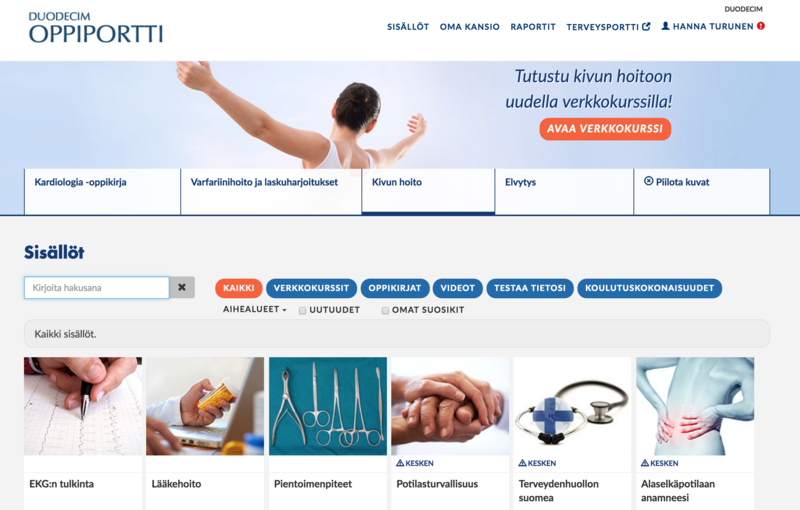e-Learning Ecologies MOOC’s Updates
Introducing a ubiquitous learning concept: Learning management systems (Essential update # 1)
A learning management system (LMS) is a software application for the administration, documentation, tracking, reporting and delivery of electronic educational technology (e-learning) courses or training programs.
An LMS is the systemic infrastructure that delivers and manages instructional content, identifies and assesses individual and organizational learning or training goals, tracks the progress towards meeting those goals, and collects and presents data for supervising the learning process of the organization as a whole. A learning management system delivers content but also handles registering for courses, course administration, skills gap analysis, tracking, and reporting.
LMSs are used by
- educational institutions to enhance and support classroom teaching and offer courses to a larger population of learners
- regulated industries (e.g. financial services and biopharma) for compliance training
- student self-service (e.g., self-registration on instructor-led training)
- training workflow (e.g., user notification, manager approval, wait-list management)
- the provision of on-line learning (e.g., computer-based training, read & understand), on-line assessment
- management of continuous professional education (CPE)
- collaborative learning (e.g., application sharing, discussion threads)
- training resource management (e.g., instructors, facilities, equipment)
Some LMS providers include "performance management systems", which encompass employee appraisals, competency management, skills-gap analysis, succession planning, and multi-rater assessments. Modern techniques now employ competency-based learning to discover learning gaps and guide training material selection.
LMSs as ubiquitous learning concept make possible anytime, anywhere learning and give teachers or organizations tools for surveillance and tracking. With the recent technology and web application advancement, a new generation of LMSs have emerged which have some new features, making LMSs even more ubiquitous: the are flexible and mobile. U-learning system can not only lead students into continuous and mobile learning using any kind of terminal, but can also foster enhanced self-directed learning through the establishment of an adaptive learning environment.
References:
https://en.wikipedia.org/wiki/Learning_management_system
http://www.edubilla.com/online-degree-programs/articles/learning-management-system/
William R. Watson, Sunnie Lee Watson. An argument for clarity: what are learning management systems, what are they not, and what should they become?. TechTrends, Springer Verlag, 2007, 51(2), pp.28-34.
Ji-Seong Jeong, Mihye Kim, Chan Park, Jae-Soo Yoo, Kwan-Hee Yoo. Flexible Ubiquitous Learning Management System Adapted to Learning Context . Springer Berlin Heidelberg, 2010, pp. Volume 124 of the series Communications in Computer and Information Science, pp 48-5948-59




Thanks for commenting! There are so many LMS softwares and different approaches and technologies that it has been and it still is a bit difficult for me to understand the big picuture here. But Mitchell i think you are right, LMS's are also evolving now the way you desribed. Scholar is very interesting example!
Great contribution Hana. Many authors and observers may argue that LMS's represent outdated technology, for example the more dominant brands (Moodle, Blackboard) rely on very old technologies, uploading and downloading files, and do not foster the type of knowledge co-creation or collaborative writing that some other environments might foster (like google drive or even Scholar), although of course, LMS's can also evolve with emerging technologies and social practices on the web. Additionally, another critique of LMS's might be their institutional and highly structured character, that they are simply laid out in linear form (like a course syllabus), and are used to replace the textbook in terms of delivering content. Of course, they have their value and affordances, but what I view as an important educational problem today is how we can link informal and unstructured learning processes/environments with those of more formal and structuralized processes/environments that happen in most LMS's.
Thanks for your update!!
Thanks Hanna for your update. Learning Management System is indeed one of the great examples on Ubiquitous learning. It allows students to learn at their own pace regardless of when and where to learn. Take of instance this software Scholar. We are in two different places and it allows us to communicate with respect to our time availability.